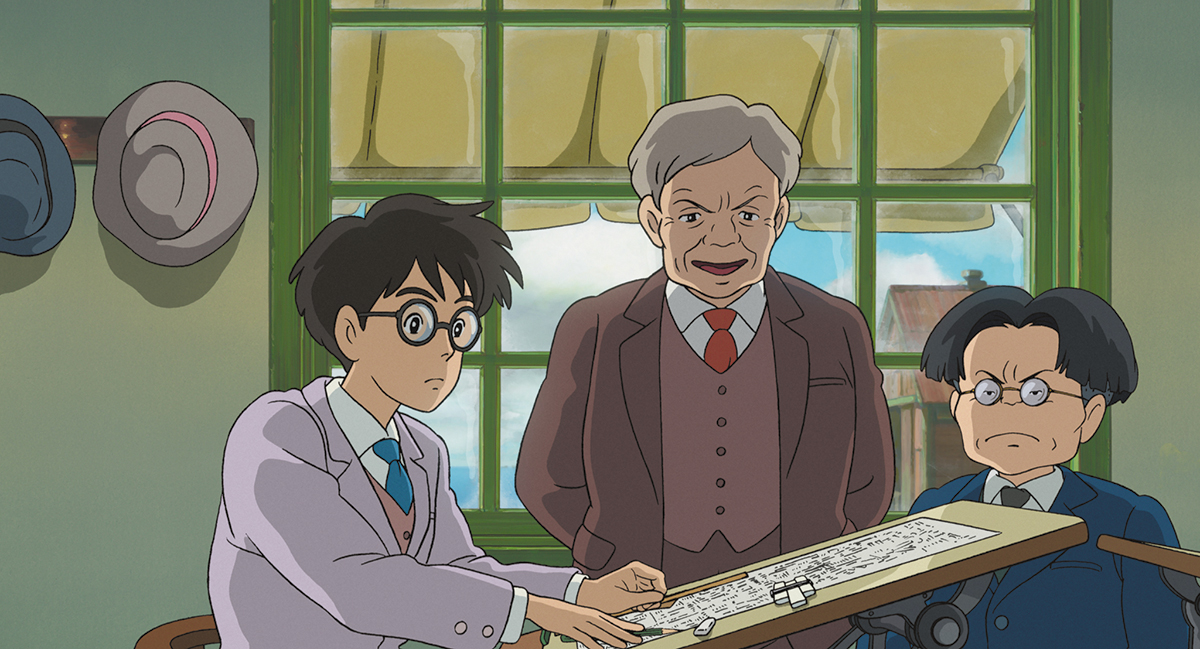Movie Review: ‘The Wind Rises’

(Walt Disney Pictures)
By Tony Huang
Feb. 20, 2014 12:05 a.m.
“The Wind Rises”
Directed by Hayao Miyazaki
Walt Disney Pictures
3.5 / 5.0 paws
When Hayao Miyazaki, possibly the world’s most beloved animation director, announced retirement while premiering his latest film, “The Wind Rises,” his hopeful fans noted that this is not the first time he’s expressed such a sentiment. A year later, he has indeed retracted the statement – but the film itself carries with it the air of a swan song nonetheless.
Based on the true story of Jiro Horikoshi, famed designer of the Mitsubishi A6M planes used during World War II, “The Wind Rises” originated from Miyazaki’s own obsession with aircraft. A rare Miyazaki film with few overt fantasy elements, it seems to be a conscious effort on the director’s part to investigate some real and personal preoccupations – chief among them the complex relationship between an artist and his art.
“The Wind Rises” ventures into moral gray areas never before explored by the director, weighing the sins of a country against the failings of an Horikoshi, voiced by Joseph Gordon-Levitt, as he struggles to find balance through beauty.
The film opens on the beginning of Horikoshi’s obsession with airplanes, a dream sequence fairly characteristic of Miyazaki’s films, in which it is made clear that the protagonist’s relationship to aircraft is a personal and artistic one. It then skips ahead to Horikoshi at school, then Horikoshi at work, then Horikoshi during the war and Horikoshi falling in love. The story is told in a fairly straightforward biography fashion with occasional recurring dream fantasies, only something about the emotional undertone doesn’t feel conventional at all.
Immediately striking about the film is its tone: melancholy and detached, yet curiously – almost despite itself – reverent. When making a film about a man most known for making planes of war, a political statement on either side is almost mandatory. You would expect the film to either take up a strong moralistic stance against the whole effort, or lapse into nostalgia for a great mind (and, implicitly, era).
Miyazaki doesn’t quite scratch the itch of those looking for a condemnation of Japanese war efforts, nor does he lean in fully on the glorifying elements of the story. He aims, instead, for something like neutrality, suppressing Horikoshi’s expressiveness until he becomes a stand-in for the everyman, rather than patriot or murderer.
In a way, Miyazaki’s Horikoshi is a Buster Keaton-esque creation, a man who has everything happen to him, with his own passions pursued in a passive, dutiful way. The most radical thing about this approach is how normal it attempts to be. It’s a wonderfully unconventional way to portray a man of infamy, depriving hints of heroism while accentuating his relationship to the common Japanese people during the war.
It’s easy to get the sense that Miyazaki is placing himself in Horikoshi’s shoes, wondering how he would choose between country and self, duty and morality and, implicitly, wondering how the average person would choose.
Still, despite Miyazaki’s dedication to understatement and de-emphasis, there’s still a sense that some psychological crisis has been evaded. The strong ethical problem at the core of the movie isn’t tackled head-on, eluded in favor of something safer but more assuredly affecting. The film contains an inherent contradiction – a man doing bad things, justified by the mysterious qualities of art – but never quite grasps the pain of Horikoshi the human being, perhaps because it is too busy trying to understand Horikoshi as an archetype.
“The Wind Rises” is still a rich, complex, inviting film, even if it isn’t as penetrating as it might like to be. Thankfully, Miyazaki’s still at it, so maybe next time he’ll get even closer to the truth of the matter.


